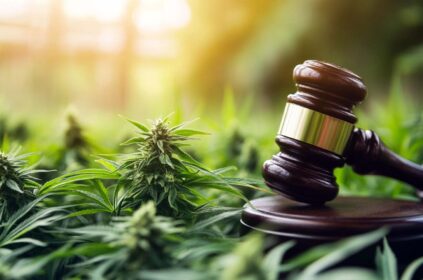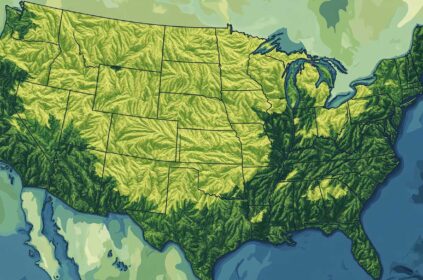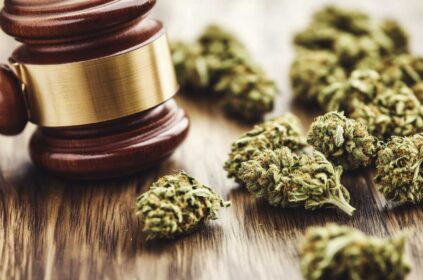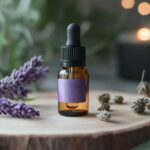Introduction
The legal landscape of CBD (Cannabidiol) in the United States has seen remarkable changes in recent years, particularly after the passage of the 2018 Farm Bill. This transformative legislation opened the door for a flourishing industry, leading to an explosion of various CBD products now available in the marketplace. Understanding the regulations that govern these products is essential for consumers and businesses alike, as it provides clarity on the legal parameters within which they operate. In this informative piece, we’ll explore the current federal and state regulations, the impact of the FDA, and the emerging trends within the CBD market.
Federal Regulations: The 2018 Farm Bill
At the heart of the legal status of CBD is the 2018 Farm Bill, officially known as the Agricultural Improvement Act. This significant piece of legislation redefined hemp, distinguishing it from marijuana, thereby allowing for the production, sale, and use of hemp-derived CBD products under specific conditions. Here are the fundamental elements of this bill:
- Hemp Definition: The 2018 Farm Bill specifies hemp as any part of the Cannabis sativa L. plant with a THC concentration of no more than 0.3% on a dry weight basis. This includes the seeds, extracts, cannabinoids, isomers, and derivatives.
- Federal Legality: Hemp-derived CBD products that meet the THC threshold are considered federally legal. This means consumers can legally purchase, possess, and use CBD oil that adheres to this guideline.
While the federal framework provides a foundation, the legality of CBD varies significantly at the state level, leading us to explore the differing regulations across the country.
State Laws and Regulations
State laws create a patchwork of regulations concerning the use of CBD, which can either complement or complicate the federal laws. Here’s a closer look at how states interpret CBD legality:
Fully Legal States
In states like California and Colorado, CBD derived from both hemp and marijuana is fully legal, enhancing consumer access. These states boast comprehensive laws that facilitate the sale and distribution of CBD products without the onerous restrictions seen elsewhere.
Conditionally Legal States
Many states have adopted conditional regulations, allowing the sale of CBD under specific circumstances:
- Alabama: CBD oil containing more than 0.3% THC can only be obtained with a medical cannabis license for qualifying conditions.
- Kentucky: The state allows only CBD oil with a THC concentration of 0.3% or less.
- Louisiana: Similar restrictions apply, but CBD oil with higher THC levels may be permissible for certain medical conditions.
Restrictive States
Conversely, some states have maintained stringent laws concerning CBD:
- Idaho: CBD products must have zero THC and be derived from specific parts of the cannabis plant to be legal.
- Nebraska: The state allows only hemp-derived products that must be free of THC.
Regulatory Trends and Requirements
As the CBD industry matures, several regulatory trends are becoming apparent, reflecting a growing understanding of the need for safety and transparency:
Labeling and Testing
One notable trend is the increasing requirement for clear labeling and rigorous quality control. Many states now mandate that CBD products feature:
- Clear Labels: Information regarding the CBD content, THC levels, and other ingredients.
- Testing Results: QR codes linking to lab reports that authenticate claims about the product’s composition.
These measures aim to protect consumers and ensure they receive safe, reliable products.
Production and Sale Oversight
Each state is now developing frameworks for the testing and production of CBD. For example, states such as New York, California, and Florida have enacted laws governing the manufacturing processes. Compliance with health and safety standards is crucial for businesses looking to operate legally in these markets.
FDA Oversight
Another critical player in the CBD regulatory landscape is the Food and Drug Administration (FDA). The agency is responsible for ensuring that products marketed to consumers are safe and accurately represented.
- Dietary Supplements: For CBD products classified as dietary supplements, the FDA enforces strict guidelines. These products must adhere to good manufacturing practices and avoid making unproven claims about health benefits.
- Food and Cosmetics: Currently, the FDA does not approve CBD as an ingredient in food or cosmetics, leading to enforcement actions against companies that violate these restrictions.
Conclusion
Understanding the legal landscape surrounding CBD in the United States is essential for consumers and businesses alike. Here are the noteworthy takeaways:
- Federal Legality: Hemp-derived CBD with a THC concentration of 0.3% or less is permitted under federal law.
- State Variations: Legal definitions and restrictions greatly differ from state to state, requiring vigilance and thorough research.
- Labeling and Testing: Clear product labeling and rigorous testing are becoming industry standards, promoting consumer safety and trust.
- FDA Role: The FDA continues to regulate CBD products, particularly those marketed as dietary supplements or food ingredients, emphasizing compliance with established norms.
For consumers, navigating these regulations ensures a safe and satisfying experience with CBD products. For businesses, staying ahead of regulatory requirements is crucial for sustained growth and avoiding legal complications. As the CBD industry evolves, remaining informed about the latest trends and regulations will help all stakeholders thrive in this dynamic landscape.
Actionable Tips
- Check State Laws: Always review your state’s specific regulations before purchasing or selling CBD products.
- Ensure Compliance: Verify that all products comply with applicable federal and state standards, including labeling and testing.
- Stay Updated: Keep a close eye on updates from the FDA and state regulators to ensure ongoing compliance with evolving laws.
By arming yourself with knowledge about the legal landscape of CBD, you’ll be better equipped to navigate this exciting industry with confidence and clarity.




















